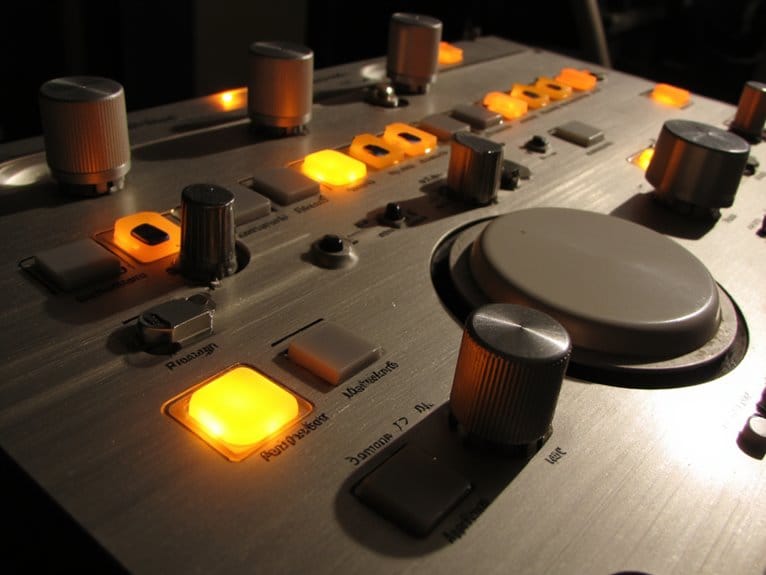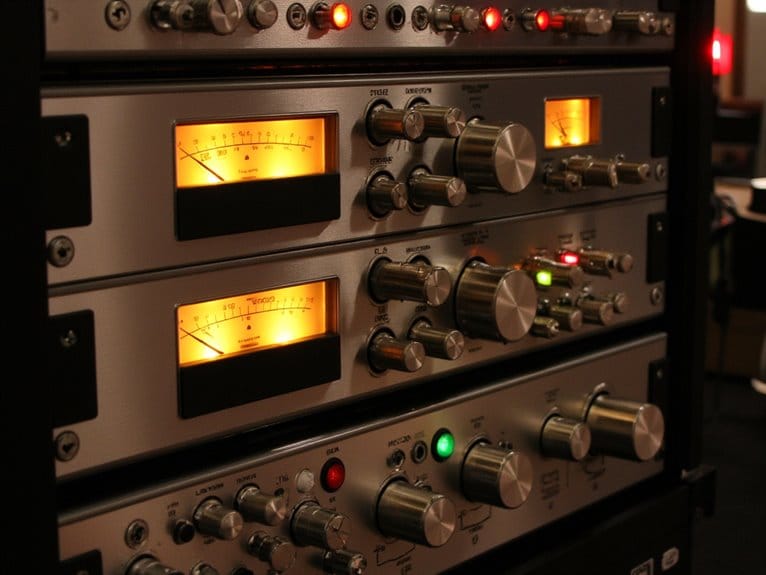What Is the Greek Mythology Flute?
In ancient Greek mythology, the flute is a divine instrument born from the hands of the god Pan, who crafted it from reeds to woo the nymph Syrinx, thereby establishing its significance as a symbol of creativity, passion, and wisdom. As a Muse's instrument, it inspires artistic expression, and with Apollo's mastery, it channels divine authority, conveying the essence of the gods. With Pan's wild and primal beauty, the flute evokes the natural world, while in ancient Greek culture, it played a significant role in shaping the nation's identity. The flute's mythical past holds many more secrets, waiting to be unearthed.
We are supported by our audience. When you purchase through links on our site, we may earn an affiliate commission, at no extra cost for you. Learn more.
Origins of the Flute in Myth
Origins of the Flute in Myth
According to ancient Greek mythology, the flute originated from the story of the god Pan, who fashioned the first flute from reeds in a futile attempt to woo the nymph Syrinx. This mythical creation story highlights the flute's significance as a divine creation, born from the hands of a god. The flute's association with Pan, the patron of shepherds and fertility, further solidifies its connection to the natural world. As a Muse's Instrument, the flute was believed to inspire creativity and artistic expression. The mythological origins of the flute have contributed to its enduring charm, enchanting the hearts of musicians and myth enthusiasts alike. The flute's rich history has woven a narrative that continues to resonate with people, making it an integral part of Greek cultural heritage.
Apollo and the Flute's Power
While Pan's creation myth established the flute's divine pedigree, Apollo's association with the instrument further amplified its power, as the god of music, poetry, and prophecy used the flute to channel his divine authority. With Apollo's mastery, the flute became a tool for conveying Divine Inspiration, imbuing its melodies with the essence of the gods. As he played, the notes resonated in perfect Celestial Harmony, bridging the mortal domain with the divine. Apollo's flute was said to have the power to heal, to bring forth wisdom, and to summon the Muses themselves. Through his music, Apollo exemplified the flute's capacity to evoke the sublime, elevating it to an instrument of divine expression.
Pan's Flute and the Forest
In the heart of the forest, Pan's flute wove a sonic tapestry that harmonized with the rustling leaves, chirping birds, and gentle brooks, conjuring an atmosphere of untamed wildness and primal beauty. As the god of the wild, Pan's flute was an extension of the forest itself, echoing Silvan whispers that only the trees and creatures of the woodland understood. With each note, the forest magic swirled around him, summoning the ancient power of the natural world. The trees leaned in, as if to listen, and the creatures of the forest gathered around, entranced by the mesmerizing melody. In this sacred space, Pan's flute was the conductor of the forest's symphony, weaving a spell of enchantment that would last for eternity.
The Flute in Ancient Greek Culture
Throughout ancient Greek city-states, the flute emerged as a ubiquitous instrument, its melodious voice echoing in various aspects of civic life, from religious rituals and theatrical performances to informal social gatherings and athletic competitions. As one of the most popular Greek instruments, the flute played a significant role in shaping the cultural identity of ancient Greece. Its cultural significance extended beyond mere entertainment, as it was often used to invoke the gods, accompany mythological tales, and even facilitate social bonding. The flute's versatility and expressiveness made it an indispensable part of ancient Greek culture, reflecting the nation's love for beauty, creativity, and intellectual pursuits.
Myths of Love and the Flute
The mythological domain of ancient Greece reverberated with tales of love, passion, and heartbreak, where the flute played an enthralling accompanist, echoing the tender whispers of Eros and the mournful laments of forsaken lovers. In this sphere, the flute's melodies wove a tapestry of emotions, underscoring the fleeting romance and mortal passion that characterized the lives of gods and mortals alike.
- In the myth of Apollo and Daphne, the flute's sweet notes accompanied the god's pursuit of the nymph, symbolizing the unrequited love that often ended in tragedy.
- The flute's mournful tones echoed the sorrow of Orpheus, who lost his beloved Eurydice to the underworld.
- The instrument's lyrical voice whispered secrets of the heart to the lovesick, as in the tale of Narcissus, who fell in love with his own reflection.
- Through the flute's haunting melodies, the ancient Greeks expressed the complexities and contradictions of the human experience in this domain.
The Flute's Symbolic Significance
Beyond its sonic beauty, the flute in Greek mythology carried a rich symbolic significance, embodying the contradictions of love, desire, and the human condition. As a mystical instrument, it bridged the gap between the mortal and divine domains, conveying the complexities of human emotions. The flute's sonic magic was said to have the power to entice, seduce, and even tame the savage beast. In the hands of mythological figures like Pan and Apollo, the flute became an extension of their divine authority, symbolizing creativity, passion, and wisdom. Through its symbolic significance, the flute in Greek mythology continues to enchant and inspire, offering a glimpse into the timeless and universal human experience.





